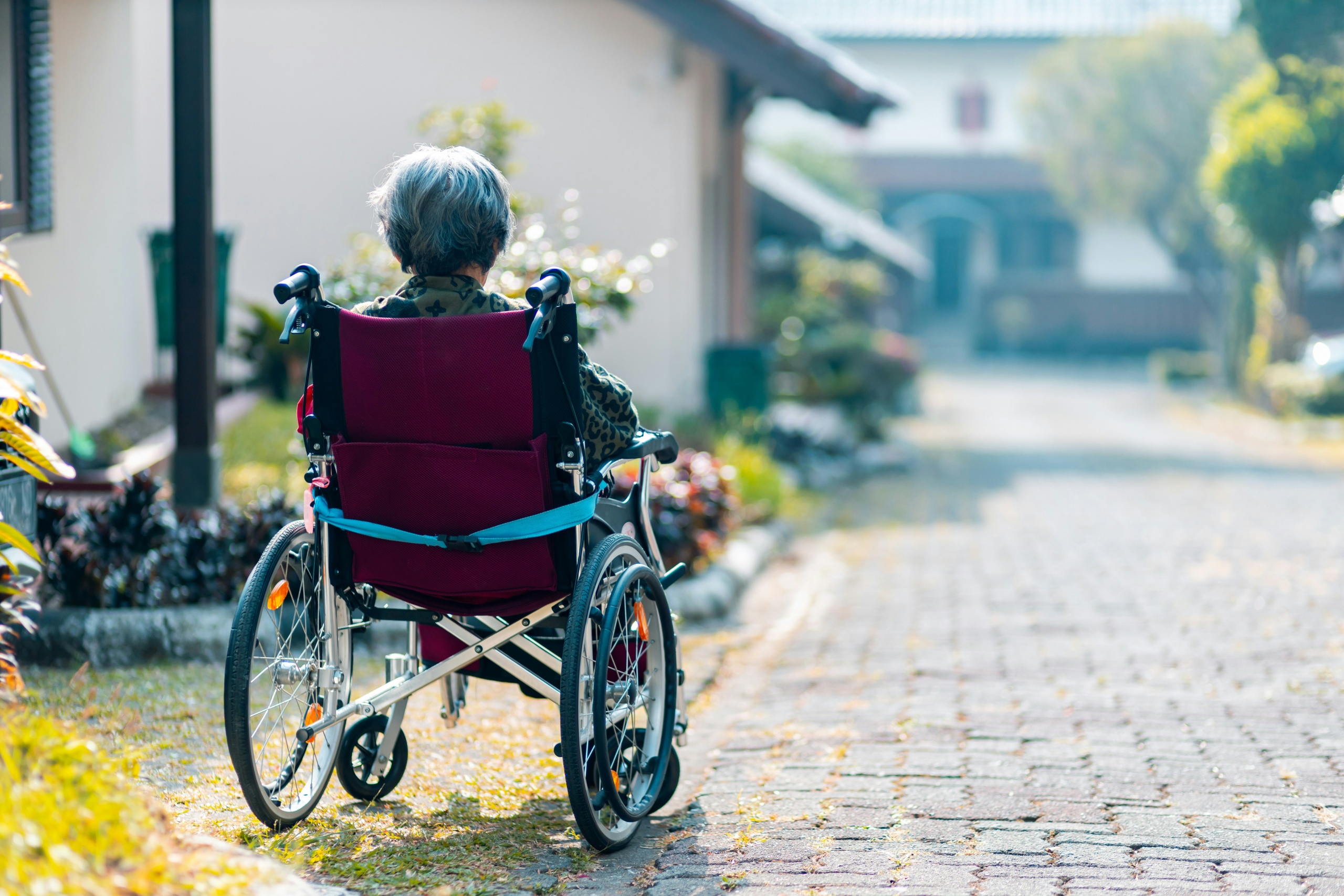In the intricate tapestry of human health, few threads are as complex and emotionally charged as dementia. This condition, which gradually erodes memory, thinking, and social skills, profoundly impacts not just the individuals diagnosed but also those who surround them with love and care. The journey of dementia is often unpredictable and harrowing, marked by moments of profound sadness and unexpected challenges. Yet, within this journey, there lies a ray of hope and support – in-home care.
In-home elder care represents more than just medical assistance; it’s a lifeline for families as they navigate the turbulent waters of dementia. The progression of dementia can be a long, winding road, filled with uncertainties and adjustments. Families often find themselves unprepared for the rapid changes and escalating care needs that come with each stage of the condition. It’s a path that requires immense emotional resilience, a deep understanding of the disease, and an unyielding commitment to providing compassionate care.
The importance of in-home care cannot be overstated in this context. It offers a unique blend of personal and medical support, tailored to meet the evolving needs of those with dementia. Caregivers step into the family’s world, bringing with them not just skills and experience, but also empathy and a deep sense of commitment. They become an integral part of the family’s journey, offering guidance, relief, and a comforting presence in times of need.
Understanding Dementia
Dementia is not a single disease; it’s an umbrella term covering a wide range of medical conditions, including Alzheimer’s disease, characterized by a decline in memory, reasoning, and cognitive functions. This decline interferes significantly with an individual’s daily life and activities. Each case of dementia is as unique as the individual it affects, with symptoms and progression patterns varying widely.
The Nature of Dementia
At its core, dementia is a progressive condition, meaning it worsens over time. Initially, symptoms may be mild and easily mistaken for normal aging. However, as the condition progresses, these symptoms become more pronounced, affecting memory, language, problem-solving skills, and even personality and behavior. Understanding these changes is crucial for caregivers and families, as it helps them prepare for the challenges ahead.
Stages and Symptoms
Dementia is often categorized into stages – early, middle, and late. In the early stage, symptoms can include forgetfulness, losing track of time, and becoming lost in familiar places. As it progresses to the middle stage, symptoms become more evident. Individuals may struggle with communication, experience mood swings, and show signs of confusion. In the late stage, individuals may lose the ability to speak, recognize loved ones, and care for themselves, requiring full-time assistance.
Alzheimer’s Disease and Other Causes
While Alzheimer’s disease is the most common cause of dementia, accounting for an estimated 60-80% of cases, other types include vascular dementia, Lewy body dementia, and frontotemporal dementia. Each type has its own set of symptoms and progression patterns, which can overlap, adding to the complexity of diagnosis and care.
Prevention and Treatment
Currently, there is no cure for dementia, but there are dementia treatments available that can temporarily slow the worsening of symptoms. Medications can help manage cognitive symptoms, while non-drug therapies can assist in managing behavioral symptoms. Research also suggests that a healthy lifestyle, including regular exercise, a balanced diet, and mental stimulation, can play a role in preventing or delaying certain types of dementia.
The Importance of Early Diagnosis
Early diagnosis is key in managing dementia effectively. It provides a better chance of benefiting from treatment, allows more time for planning and adjustment, and offers the opportunity for the person with dementia to participate in decisions about their care and future.
The Challenges Faced by Families
Emotional and Physical Toll
Caring for a loved one with dementia is an emotionally complex and physically demanding journey. It often involves a profound shift in roles and responsibilities within the family. As the condition progresses, caregivers may experience a range of emotions, from guilt and frustration to grief and helplessness. The physical demands of caregiving — such as assisting with daily activities and managing unexpected behaviors — can lead to exhaustion and burnout. Recognizing and addressing these emotional and physical challenges is crucial for the well-being of both the caregiver and the person with dementia.
Financial and Social Implications
Dementia care can also have significant financial implications. The cost of medical care, home modifications, and potentially long-term care facilities can be substantial. Families often face the challenge of balancing the financial aspects of care with the desire to provide the best possible support for their loved one. Additionally, the social impact of dementia on families cannot be overlooked. Caregivers may find themselves increasingly isolated as they dedicate more time to caregiving, leading to a loss of social connections and support networks.
Navigating Complex Care Needs
As dementia progresses, the complexity of care increases. Families must navigate a labyrinth of medical appointments, medication management, and changing care needs. This can be overwhelming, particularly for those without prior experience in caregiving or medical knowledge. Understanding the stages of dementia and the associated care needs at each stage is vital for effective and compassionate caregiving.
The Impact on Family Dynamics
Dementia can profoundly impact family dynamics. Roles within the family may shift as adult children become caregivers for their parents, and spouses adapt to the changing needs of their partners. These role reversals can be challenging to navigate and can strain family relationships. Open communication and seeking external support are essential in managing these changes.
Coping with the Progressive Nature of Dementia
One of the most challenging aspects of dementia is its progressive nature. Families must continually adapt to the evolving stages of the condition, which can be emotionally draining. The uncertainty about the rate of progression and the future can create significant anxiety for families. Coping with this uncertainty requires resilience, flexibility, and a strong support system.
Role of In-Home Caregivers
Personalized and Compassionate Care
In-home caregivers play a pivotal role in the dementia care journey, offering tailored and compassionate care that addresses the unique needs of each individual. They assist with daily activities such as bathing, dressing, and meal preparation, ensuring that the person with dementia maintains a sense of routine and dignity. But their role goes beyond physical care; they provide emotional support, understanding, and companionship, which are invaluable in dealing with the isolation often experienced in dementia.
Managing Daily Challenges
In-home caregivers are skilled in managing the day-to-day challenges that come with dementia. They employ strategies to handle memory loss, communication barriers, medication management, and behavioral changes, such as agitation or confusion. Their presence offers reassurance to both the individual with dementia and their family members, knowing that their loved one is in capable and caring hands.
Creating a Safe and Stimulating Environment
In-home caregivers are also instrumental in creating a safe, nurturing, and stimulating environment. They help implement necessary home modifications to ensure safety and can engage the person with dementia in activities that promote cognitive stimulation and physical well-being, thereby enhancing their quality of life.
Adapting to Changing Needs
As dementia progresses, the needs of the individual evolve. In-home caregivers are adept at recognizing these changes and adapting their care approach accordingly. This flexibility is crucial in providing continuous and effective care throughout the different stages of dementia.
Providing Respite and Support for Families
In-home caregivers offer much-needed respite for family members, allowing them to take breaks and focus on their own health and well-being. This support is vital in preventing caregiver burnout and in maintaining the overall health of the family unit. Caregivers also serve as a source of emotional support and guidance for family members, helping them navigate the emotional complexities and challenges of dementia care.
Building a Relationship Based on Trust and Respect
The relationship between in-home caregivers and families is built on trust, respect, and empathy. Caregivers become an integral part of the family’s support system, often forming deep and meaningful connections with both the person with dementia and their family members. This relationship and companionship services are fundamental in providing personalized and effective care.
Educational and Supportive Role of In-Home Caregivers
Educating Families About Dementia
In-home caregivers play a crucial role in educating families about dementia. This education includes understanding the disease’s progression, recognizing signs and symptoms, and learning effective communication and care strategies. Caregivers often provide resources and materials that can help families better understand what their loved one is experiencing and how to best support them. This knowledge empowers families, helping them feel more equipped and confident in their caregiving roles.
Guiding Through the Stages of Dementia
As dementia progresses through various stages, caregivers guide families on what to expect and how to adapt. They offer insights into behavioral changes and how to manage them, suggest modifications to the living environment to ensure safety, and advise on health care decisions. This guidance is invaluable in helping families navigate the often complex and emotional journey of dementia care.
Support in Daily Caregiving Tasks
Caregivers also provide practical support in daily caregiving tasks. They teach families techniques for assisting with activities of daily living, managing medication routines, and creating a structured environment that can reduce confusion and agitation for the person with dementia. This hands-on support alleviates the physical and emotional burden on families.
Stress Management and Coping Strategies
Caring for a loved one with dementia can be incredibly stressful. In-home caregivers offer coping strategies to family members, helping them manage their stress and maintain their well-being. This support might include advice on self-care, relaxation techniques, and strategies for balancing caregiving with other responsibilities.
Advocacy and Assistance in Navigating Healthcare Systems
Caregivers often act as advocates for the person with dementia, ensuring they receive the appropriate care and services. They assist families in navigating complex healthcare systems, understanding treatment options, and making informed decisions about care. This advocacy is critical in ensuring that the person with dementia’s needs are adequately met.
Building a Supportive Community
In-home caregivers help connect families with wider community resources, such as support groups, counseling services, and educational workshops. These connections can provide additional support and a sense of community, helping families feel less isolated in their experience.
Empowering Individuals with Dementia
In St. Petersburg, FL, a pioneering approach to dementia care, spearheaded by Dr. Denise DuPree, DACM, AP, of Homewatch CareGivers of St. Pete Beach, is gaining widespread attention. This innovative strategy revolves around empowering individuals with dementia to continue living in their own homes. The emphasis is on allowing them to age in place, maintaining their safety, independence, and the comfort of their familiar environment, regardless of their age or the stage of their condition.
This approach goes beyond medical care; it is deeply rooted in respecting each individual’s personal history, preferences, and dignity. Dr. DuPree, who holds a doctorate in Acupuncture with a focus on integrative and evidence-based medicine, and the Homewatch CareGivers team, recognize that a home represents more than just a physical space. It holds memories, a sense of belonging, and enduring identity. By prioritizing aging in place, the goal is to enable those with dementia to stay connected to their cherished surroundings, providing a sense of normalcy and stability often absent in clinical settings.
Embracing the Journey: Enhancing Dementia Care Through In-Home Support
The journey through dementia is one paved with challenges, uncertainties, and profound emotional experiences. It’s a path that demands resilience, compassion, and an unwavering commitment to care. In this intricate and often heart-wrenching journey, in-home caregivers emerge not just as care providers, but as pillars of support, guidance, and understanding.
In-home care transcends the boundaries of traditional medical support. It represents a holistic approach to dementia care, one that acknowledges the multifaceted nature of the condition and its impact on both the individual and their family. Caregivers offer a blend of practical assistance, emotional support, and invaluable education, empowering families to navigate the complexities of dementia with greater confidence and less fear.
By providing personalized care, adapting to the evolving needs of dementia, and acting as a bridge to community resources and support, in-home caregivers alleviate the burdens faced by families. They enable a quality of life and dignity for those with dementia, while also ensuring that families have the space and strength to care for themselves and each other.
As we reflect on the role of in-home care in supporting families with dementia, it becomes clear that this form of care is not just a service — it is a form of companionship, a source of strength, and a beacon of hope. In embracing in-home care, families find a partner in their journey, one that illuminates the path with empathy, expertise, and enduring support.




